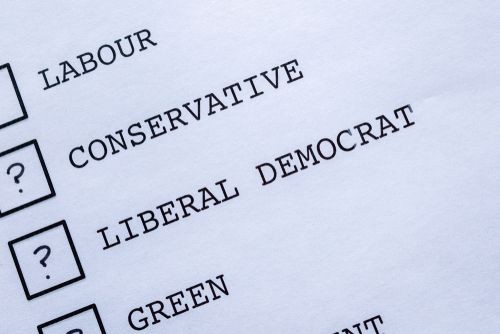How age helps to determine the way we vote
The UK election result has many people considering the future of democracy in the country. How is the democratic will best represented? Is it by the older or the younger generation? Is it by the urban or rural populace? Or is it by the Northerners or Southerners? In this column, I will focus on the first of these: how age determined the outcome of the election. As a consequence, should we put a cap on the voting age, say at 70 years?
One writer, George Chesterton, back in 2016, suggested that old people should be banned from voting, arguing that voting should be withdrawn in the same way that driving licences are. He writes: "If a 15-year-old, whose entire economic and political future could be determined by the referendum, can't vote, then neither should a 75-year-old, whose entire economic and political future could be determined by the fluctuating price of mince."
But there is a difference. Somebody can have a licence when he or she is older than 70 or even 90 years old. In NZ, where I'm based, many people have a licence at 90. (Over 80 one must have the licence renewed every two years, based on a medical, eyes in particular.) And not everyone over the age of 70, or anyone who is a grandparent for that matter, is incoherent or incompetent. Therefore, at what age should you withdraw a vote?
By withdrawing a vote are you meddling with democracy?
The election result was emphatic. Another Conservative Government, the fourth one in a row, and with an increased majority. So, Britain will leave the EU, that has been decided. Obviously, only some people will like this. The Remainers, though, are unlikely to be happy. But everyone (well, almost) must be relieved as Brexit will happen and voters can discuss other things, probably more important things at that, like health and education.
In 2017, age became a clear dividing line in British politics, according to YouGov, a British international internet-based market research and data analytics firm. This was reinforced by a survey that YouGov undertook from 17-28 October 2019 which showed the stark contrast in the voting patterns of the old and young. Of the 11,590 people who were surveyed, 38% of those aged between 18 and 24 opted to vote Labour while only 18% of those aged between 50 and 59 did so. In this age group, 39% voted Conservatives, compared with only 16-24% in the 18 to 24 age group. The biggest difference is in the 70 plus age group with only 9% voting Labour.
The difference with LibDems is not huge. About 18% of voters aged between 18 and 24 voted LibDem, while this figure drops to 14% for the 70 plus age group.
The turning point appears to be in the 40 to 49 age group where 25% of those polled still vote Labour, compared with 32% voting Conservative.
What these figures tell us is that age does help to determine voting patterns, especially where Brexit is concerned.
But when it comes to a mandatory policy on voting age, voters must be wary as to which party, if any, proposes such a policy. And does such a policy go against the principals of democracy? And just because you are "old"- that is 70 years in this case- should your voting rights be removed? Room for thought, surely?
This article was written for Behavioural Shift. Please leave any comments.


Comments